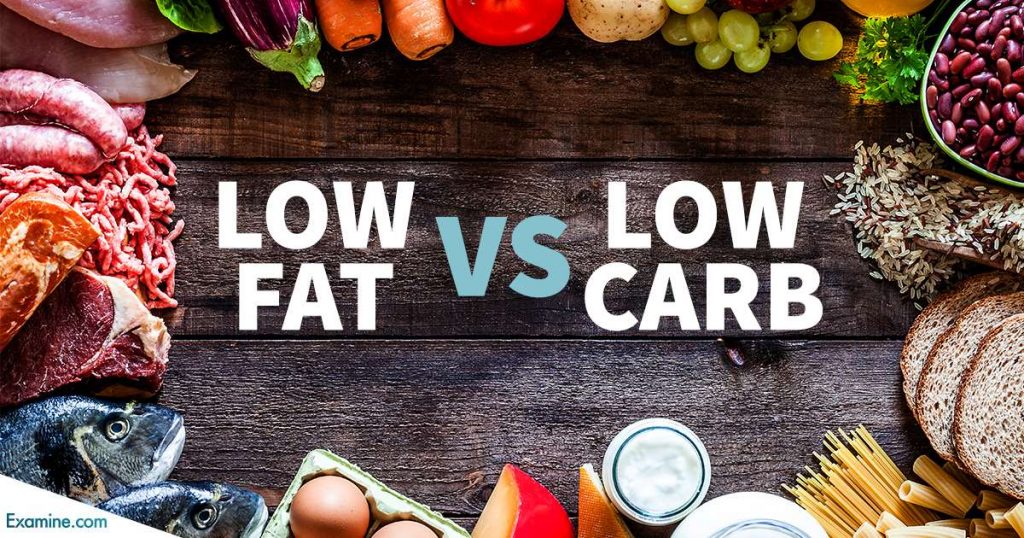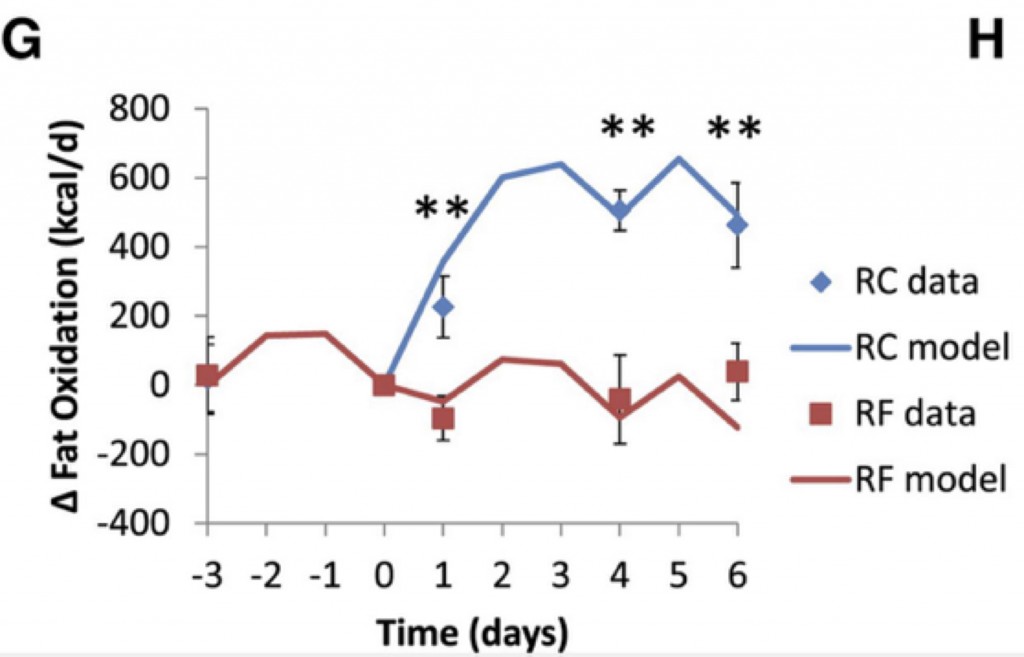A few weeks ago, we were blessed with the latest instalment in the low-fat failure archives. And as per usual, the media is spreading the research like wild fire and misleading the general public.
The study comes from the journal Cell Metabolism, with the eye-catching title:
“Calorie for Calorie, Dietary Fat Restriction Results in More Body Fat Loss than Carbohydrate Restriction in People with Obesity.”
They’ve got my attention, and if you’ve been trying to implement a lower-carbohydrate eating strategy, or following my Live It NOT Diet! plan, they probably have yours too.
Sadly, this appears to be another piece of propaganda from the ‘low-fat’ and ‘eat less’ advocates looking for any opportunity to get us buying more grains and needing more meds. As not only is the sample size way too small and duration way too short, but the low-carb diet isn’t exactly low carb; at 140g per day.

How anybody thinks 19 people following a nutrition plan for 6 days proves anything is hilarious. And how they think it takes away from any of the previous evidence suggesting the opposite is ridiculous.
Here are a few examples:
- Brehm BJ, et al. 2003 – A Randomized Trial Comparing a Very Low Carbohydrate Diet and a Calorie-Restricted Low Fat Diet on Body Weight and Cardiovascular Risk Factors in Healthy Women.
- Samaha FF, et al. 2003. A Low-Carbohydrate as Compared with a Low-Fat Diet in Severe Obesity.
- Volek JS, et al. 2004. Comparison of energy-restricted very low-carbohydrate and low-fat diets on weight loss and body composition in overweight men and women.
- Yancy WS Jr, et al. 2004. A Low-Carbohydrate, Ketogenic Diet versus a Low-Fat Diet To Treat Obesity and Hyperlipidemia. A Randomized, Controlled Trial.
- Nichols-Richardsson SM, et al. 2005. Perceived Hunger Is Lower and Weight Loss Is Greater in Overweight Premenopausal Women Consuming a Low-Carbohydrate/High- Protein vs High-Carbohydrate/Low-Fat Diet.
- Gardner CD, et al. 2007. Comparison of the Atkins, Zone, Ornish, and learn Diets for Change in Weight and Related Risk Factors Among Overweight Premenopausal Women. The a to z Weight Loss Study: A Randomized Trial.
- Shai I, et al. 2008. Weight loss with a low-carbohydrate, mediterranean, or low-fat diet.
- Partsalaki I, et al. 2012. Metabolic impact of a ketogenic diet compared to a hypocaloric diet in obese children and adolescents.
All showed greater weight loss following a low-carb diet instead of a low-fat one with durations of greater than 6 months. And in many cases the researchers had to restrict calories in the low-fat groups in order to compete with the results from the low-carbers. Only adding to it’s superiority as a long-term approach to weight-management.
With respect to the recent study from Hall et al, the first problem is the carbohydrate content in the low-carb group. It accounted for 29% of total calories; which as we’ve discussed, results in far less fat burning:

Oddly, fat was reduced to 8% of total calories for the low-fat group.
Why not reduce carbs to 8% too?
The second problem with the study is that the duration is far too short. We know the low-carb group was oxidizing more fat from Day 1, and I don’t doubt that they would’ve had a greater fat loss total if the study extended a few days longer:

Add one more day even, and I think the low-carb net fat loss of 245g over 6 days gets a lot closer to the low-fat net fat loss of 463g.
Net Fat Loss = Fat Consumed – Fat Oxidized
The other problem with the short time period is that the low-carbers were likely burning a lot of stored glycogen at first – having an overall negative effect on their total fat loss after 6 days. Start the calculation after 1-2 days of glycogen depletion or extend the study another week and the results would be quite different.
Interestingly, the low-fat group lost approximately 2000kcal more fat than the low-carb group, and this is almost identical to the amount of stored glycogen that would’ve been burned by the low-carbers. Somewhat making that 6 day duration period seem a little fishy.
Why not 7 days? or 2 weeks?

Most importantly, the short time period handicaps the main benefit of a low-carbohydrate eating strategy – IT’S SUSTAINABILITY!
As previously discussed, when you reduce the carbohydrates in your diet you’re not hungry, and not fighting an addiction to wheat, sugar and other carb-age. This is why people can make it into a lifestyle.
Lastly, it handicaps the low-carb diet by restricting calories. When you cut down on your carbohydrate intake, you don’t have to restrict calories. And as I’ve demonstrated on this blog and in Eat Meat And Stop Jogging, calorie restriction is a short-term fix that has damaging effects when taken on chronically. Drag this study on for 6 months, and both groups will be refattening, with the low-fat group fighting depression and trying to figure out how to grow their hair back (see Minnesota starvation experiment).
As the lead researcher from this recent study, Dr. Hall, later commented:
“If it’s easier to stick to one diet than another, and to ideally do it permanently, then you should choose that diet.”
That’s the free-eating low-carbohydrate one, where animal protein and fat are mandatory. There’s no need to let this latest dose of rigged research prevent you from reaching your goals by pursuing it.
Stay Lean!
Coach Mike
RELATED ARTICLES:
Low-Fat vs Low-Carb - What's To Debate?
5 Very Good Reasons to Stop Counting Calories
10 Benefits of Low-Carb You Don't Get With Other Diets
No Salt, Butter, Red Meat, Or Coffee? Doc's Got It All Wrong!
New Dietary Guidelines - 8 Ways The U.S. Government Failed AGAIN
